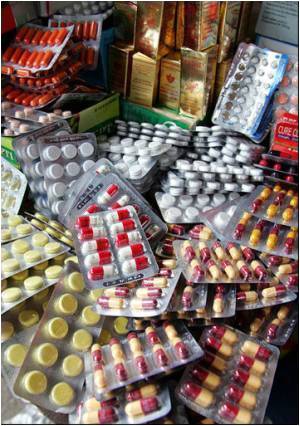We may soon have a technique to weed out fake medicines - a problem which raises its ugly head in developing countries, especially Africa, where 50% of the malaria medication is spurious.

It is not only reliable but also simple and cheap, which is a prerequisite if it is to be successfully put into use in developing countries", said Andreas Jakobsson.
The idea is the same as that behind bomb and explosives detection. Researchers have long known that it should also be possible to use this technique to trace counterfeit drugs, but it has not been sufficiently well developed for this purpose.
"The signals that are emitted from a chemical substance are incredibly weak! But we have succeeded in developing mathematical algorithms which allow us to capture them," said Jakobsson.
Professor Jakobsson and his Swedish colleague Erik Gudmundson are responsible for the mathematical calculations, while their colleagues at King's College London are responsible for the chemical experiments and the development of the equipment.
Source-ANI
 MEDINDIA
MEDINDIA




 Email
Email





